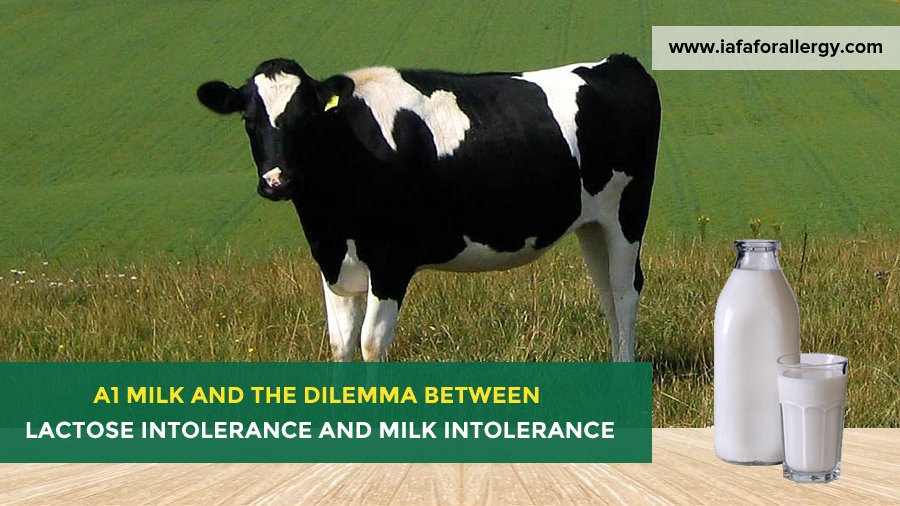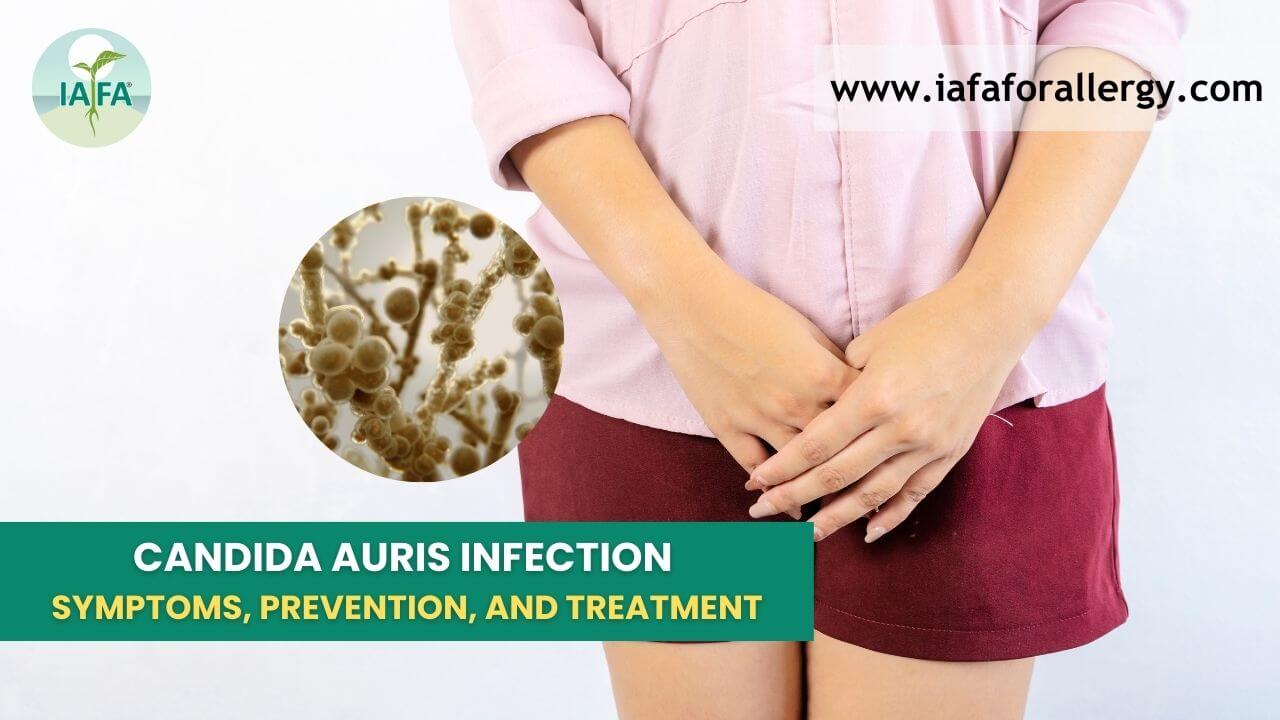Nowadays you might have heard about this overheating debate on A1 milk and its health consequences. So many researchers are working on ruling out which is the best milk to consume and which should be avoided. But, as per many studies conducted till now, A2 milk is considered to be the safer and healthier option than A1 milk. Many also complain about the after-effects of consuming A1 milk, like A1 milk intolerance or lactose intolerance. If you are also in a dilemma about this and are striving with the dairy products in your diet, then this article is for you, it will clear out all your queries, just scroll down your fingers and have a joyful and informative read.
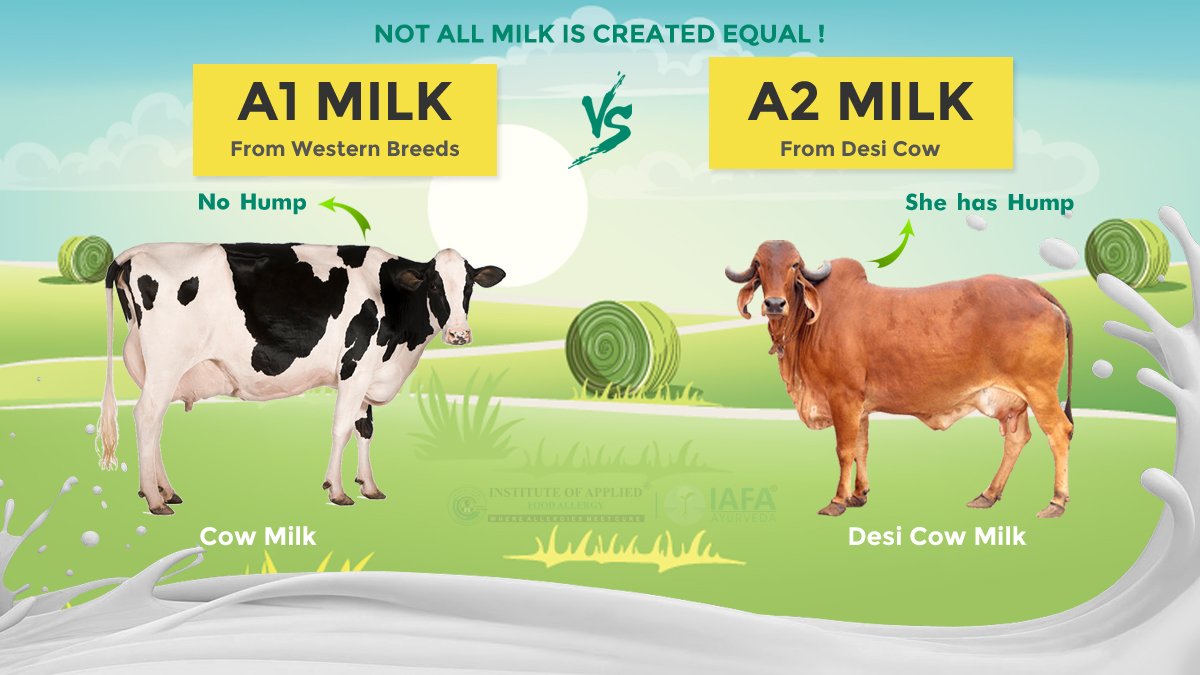
In general, A2 milk is obtained from the Indian desi cows and is easily compatible with our immune system, so our bodies don’t react to the milk protein of A2 milk.
Milk intolerance can be said when our body reacts to the protein present in that milk.
If you want to read more about A1 and A2 milk, you can read it here.
Causes of A1 Milk Intolerance
A1 milk intolerance can be caused due to the hypersensitivity reactions that our body produces when we consume A1 milk.
A1 milk produces a harmful, opioid-like agent called BCM-7 and also an immune system triggering agent called Histamine.
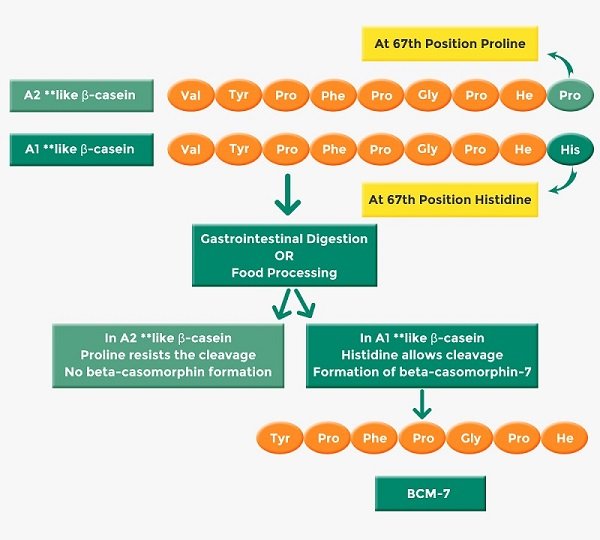
Our body considers it as an antigen and starts producing inflammatory mediation to fight against them, which is responsible for allergic reactions.
Symptoms of A1 Milk Intolerance
- Bloating after drinking milk.
- Improper digestion of dairy products made up of milk.
- Atopic dermatitis and other allergic reactions.
- Allergy March.
- Autism in children.
- Behavioral disorders in adults.
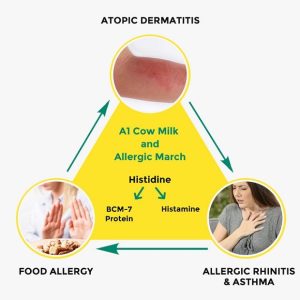
If you want to in detail about the health consequences of A1 milk, read it here.
Treatment of A1 Milk Intolerance
Treatment starts by eliminating the A1 milk from the diet of the patient. The following can be followed in the treatment of the patient with A1 milk intolerance.
- Changing the milk to safer and healthier options like A2 milk.
- Avoiding A1 milk consumption and other related dairy products.
- Providing symptomatic treatment to the patient.
- Removing Ama visha from the body by panchakarma method.
- Changing the diet of the patient as per Ayurveda, including more compatible and healthy foods.
- Trying out other types of milk to rule out whether he or she’s suffering from either milk intolerance or lactose intolerance.
What is Lactose Intolerance?
Lactose intolerance can be caused when your body fails to secrete sufficient amounts of lactase, an enzyme that breaks down lactose into glucose and galactose.
It is different from milk intolerance which we discussed earlier and many consider both the same.
Causes of Lactose Intolerance
- Insufficient amount of lactase.
- Prolonged usage of antibiotics may bring lactase deficiency.
- Premature babies because of the underdeveloped intestine produce less amount of lactase.
- Lactase may also be reduced in adults because the consumption of milk is reduced.
- Lactase production can be reduced when you are not taking more milk and related products.
- Other intestinal disorders like Crohn’s disease, gastroenteritis, and celiac disease may also reduce the secretion of lactase.
Symptoms of Lactose Intolerance
- Flatulence
- Bloating
- Diarrhea
- Abdominal pain and cramps
- Nausea and vomiting
Treatment of Lactose Intolerance
- Limit the intake of milk and dairy-related products.
- Follow a nutritious and healthy diet.
- Eat lactose-reduced foods.
- Add lactase to the milk before consuming it.
- Use probiotics, they help you to digest the lactose.
Rule out between A1 Milk Intolerance and Lactose Intolerance
A1 Milk Intolerance:
- Allergic reactions to the milk proteins.
- Reactions can be observed especially after consuming A1 milk.
- Milk intolerance can be reduced or disappeared after stopping A1 milk.
Lactose Intolerance:
- Feeling difficult to digest the milk and milk-related products.
- Symptoms can be observed even after stopping the consumption of A1 milk.
- Feels the same symptoms with any kind of milk.
By ticking the above boxes, you can easily rule out which condition you are actually suffering from.
Conclusion
Your dilemma might have cleared now, about lactose intolerance vs milk intolerance. Next time when you develop any allergic reactions after consuming milk, especially A1 milk, change the milk to a more natural and healthier option i.e A2 milk. Still, if you have symptoms of bloating, flatulence, and on, consider booking an online consultation with IAFA® and talk with Dr. Sahil Gupta, who is an allergy specialist who will surely help you to rule out lactose intolerance or milk intolerance with his magnificent knowledge of ancient Ayurveda.


